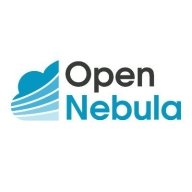

Cloudify and OpenNebula are competing platforms in cloud orchestration and management, with Cloudify holding an advantage due to its flexible features and advanced integration capabilities.
Features: Cloudify supports multi-cloud integration, application orchestration, and automation, making it ideal for complex environments. Extensive TOSCA support, infrastructure-as-code, and service chaining enhance its flexibility. OpenNebula is renowned for easy setup and management of virtualized data centers, scalable architecture, and robust API support for custom automation.
Room for Improvement: Cloudify could improve by simplifying the deployment process to better accommodate smaller organizations. Additionally, enhanced out-of-the-box integrations and streamlined resource consumption might attract more users. OpenNebula could benefit from expanded customer support, more refined enterprise features, and increased documentation for complex cloud setups.
Ease of Deployment and Customer Service: Cloudify offers customizable deployments suitable for complex enterprise needs, backed by dedicated support. OpenNebula's straightforward deployment model allows for rapid implementation, but its customer support may not match Cloudify's depth.
Pricing and ROI: Cloudify typically incurs higher setup costs but offers significant ROI for adaptable and scalable environments. OpenNebula provides a cost-effective solution with lower upfront investment, appealing to budget-conscious organizations or those with less complexity.
| Product | Market Share (%) |
|---|---|
| OpenNebula | 2.5% |
| Cloudify | 1.6% |
| Other | 95.9% |


| Company Size | Count |
|---|---|
| Small Business | 3 |
| Large Enterprise | 6 |
| Company Size | Count |
|---|---|
| Small Business | 7 |
| Midsize Enterprise | 6 |
| Large Enterprise | 3 |
Cloudify is an open-source orchestration-first cloud management platform. The solution allows applications to efficiently run across multiple cloud or data center platforms for premium multi-cloud infrastructure automation and orchestration. It provides infrastructure automation using environment as a service (EaaS) technology to deploy and continuously manage any cloud, private data center, or Kubernetes service from one central point while leveraging existing toolchains.
Cloudify Product Highlights
Cloudify Features
Cloudify has many valuable key features. Some of the most useful ones include:
Cloudify Benefits
There are many benefits to implementing Cloudify. Some of the biggest advantages the solution offers include:
OpenNebula provides the most simple but feature-rich and flexible solution for the comprehensive management of virtualized data centers to enable private, public and hybrid IaaS clouds. OpenNebula interoperability makes cloud an evolution by leveraging existing IT assets, protecting your investments, and avoiding vendor lock-in.
OpenNebula is a turnkey enterprise-ready solution that includes all the features needed to provide an on-premises (private) cloud offering, and to offer public cloud services.
We monitor all Cloud Management reviews to prevent fraudulent reviews and keep review quality high. We do not post reviews by company employees or direct competitors. We validate each review for authenticity via cross-reference with LinkedIn, and personal follow-up with the reviewer when necessary.